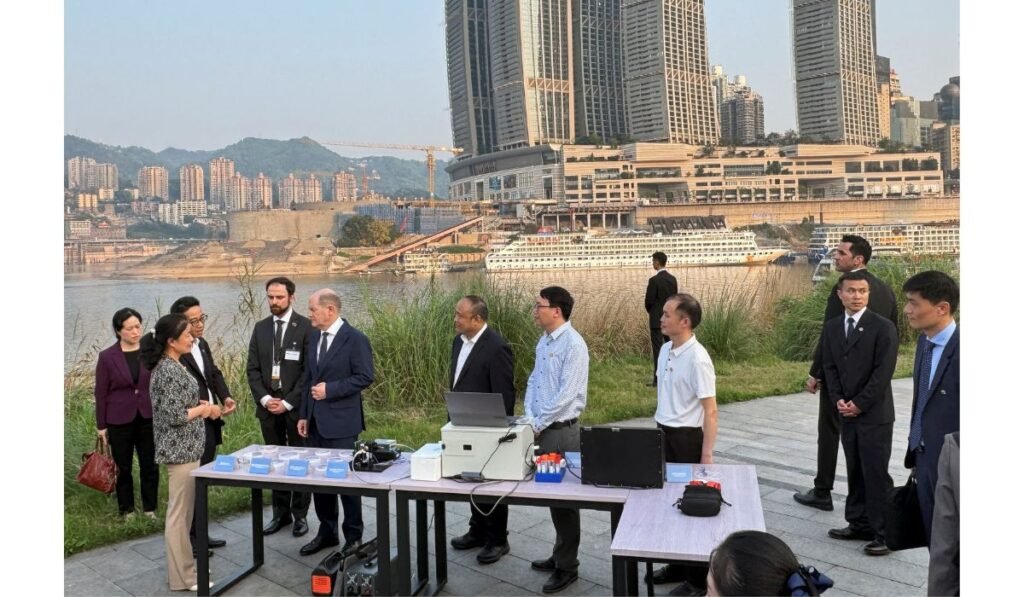During his visit to China, German Chancellor Olaf Scholz extended a welcoming hand to Chinese car manufacturers, signaling openness to their presence in the German market. German Chancellor Olaf Scholz’s recent embrace of Chinese cars while advocating for fair competition underscores the complexities of international trade relations. Although Germany benefits economically from Chinese demand for cars and chemicals, tensions arise from perceived market barriers. These barriers hinder German companies’ operations in China.
Scholz, who is in China on a three-day visit with several leading German executives, made the remarks while speaking at Tongji University in Shanghai. When Japanese and South Korean cars entered the European market, fears arose about market domination. These fears were about a one-way shift towards Asia.
“Nonsense!” said the chancellor. “There are Japanese cars now in Germany and German cars in Japan,” he said. “And the same applies to China and Germany.”
“At some point, there will also be Chinese cars in Germany and Europe. The only thing that must always be clear is that competition must be fair. In other words, that there is no dumping, that there is no overproduction, that copyrights are not infringed,” Scholz said.
In a globalized economy, fostering fair competition is crucial for ensuring a level playing field among nations. German Chancellor Olaf Scholz’s recent embrace of Chinese cars while advocating for fair competition underscores the complexities of international trade relations. As Germany’s economy relies heavily on exports, particularly to China, Scholz’s stance reflects a balancing act between promoting economic growth and safeguarding against unfair trade practices.
read more
image source








